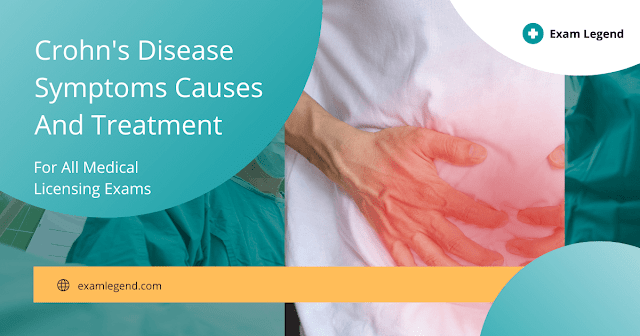Crohn's Disease: Understanding the Symptoms, Causes, and Treatment Options
Crohn's disease is a chronic condition that affects the digestive system, causing inflammation and irritation in the gut. It is a type of inflammatory bowel disease (IBD) and can impact the small intestine and large intestine, as well as the mouth, esophagus, and other parts of the body. If you are looking to better understand Crohn's disease and how it can be treated, this article will provide a comprehensive overview of the symptoms, causes, and treatment options available.
Symptoms of Crohn's Disease
Crohn's disease can cause a wide range of symptoms, and the severity of these symptoms can vary greatly from person to person. Some of the most common symptoms of Crohn's disease include:
- Abdominal pain and cramping
- Diarrhea
- Fatigue
- Loss of appetite
- Weight loss
- Fever
- Night sweats
- Anemia
- Stomach ulcers
It is important to note that not all individuals with Crohn's disease will experience all of these symptoms, and the severity of symptoms can also fluctuate over time. Some individuals may experience long periods of remission where symptoms are minimal, while others may experience periods of exacerbation where symptoms are severe.
Causes of Crohn's Disease
The exact cause of Crohn's disease is not yet fully understood, but it is believed to be a combination of genetic and environmental factors. Some of the factors that may contribute to the development of Crohn's disease include:
- Family history of IBD
- Smoking
- A diet high in processed foods and low in fiber
- Use of nonsteroidal anti-inflammatory drugs (NSAIDs)
- A history of infections in the gut
- A weakened immune system
It is important to note that the exact cause of Crohn's disease can vary from person to person, and further research is needed to better understand the underlying mechanisms of the condition.
Treatment Options for Crohn's Disease
Crohn's disease is a chronic condition, which means that it cannot be cured, but it can be managed with a combination of medications, lifestyle changes, and surgery. Some of the most common treatments for Crohn's disease include:
Medications:
There are several medications available that can help to reduce inflammation and manage symptoms of Crohn's disease. These medications include aminosalicylates, corticosteroids, immunomodulators, and biologics.
Lifestyle Changes:
Making changes to your diet and lifestyle can also help to manage symptoms of Crohn's disease. This may include eating a diet that is high in fiber and low in processed foods, quitting smoking, and reducing stress levels.
Surgery:
In some cases, surgery may be necessary to remove a section of the intestine that is damaged or infected. This can help to alleviate symptoms and improve quality of life.
It is important to work closely with your healthcare provider to determine the best treatment plan for your individual needs. With the right combination of medications, lifestyle changes, and surgery, it is possible to effectively manage symptoms of Crohn's disease and live a healthy and fulfilling life.
Conclusion
Crohn's disease is a chronic condition that affects the digestive system and can cause a wide range of symptoms. While the exact cause of Crohn's disease is not yet fully understood, it is believed to be a combination of genetic and environmental factors. With the right combination of medications, lifestyle changes, and surgery, it is possible to effectively manage symptoms of Crohn's disease and live a healthy and fulfilling life.

Comments
Post a Comment